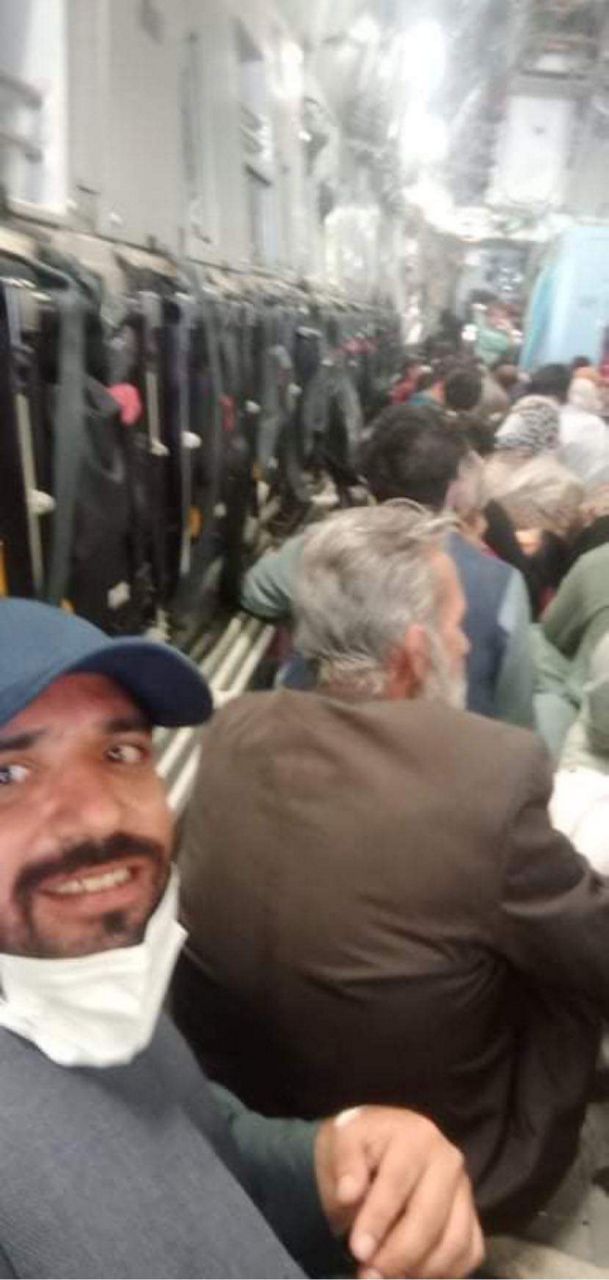A group of U.S. veterans who assembled an informal task force to help evacuate Afghan allies do not plan on stopping their mission, even as government officials warn of the possibility of more attacks around the Hamid Karzai International Airport in the days to come.
“Task Force Dunkirk” is one of several quickly-assembled teams working to evacuate Afghan interpreters, translators, other allies and their families. The group, comprised of former CIA agents and military personnel, has been in contact with people on the ground in Afghanistan to coordinate evacuations since the Taliban took control of Kabul, the country’s capital, nearly two weeks ago.
“We are committed to the Afghan people and our partners and the people that we lived and served with for the last two decades going forward,” Russell Worth Parker, a former U.S. marine and a member of the task force, told Spectrum News on Thursday. “Nothing about a Taliban or an ISIS suicide bomb is going to affect that. We've dealt with Taliban and ISIS suicide bombs for two decades. Our commitment is unwavering.”
Government officials confirmed at least 12 U.S. service members were killed when suicide bombers detonated their weapons around the aiport’s compound early Thursday. As of mid-afternoon on Thursday, Afghan officials said at least 60 Afghans were killed and 143 others were wounded in the airport attack.
The top U.S. general in Afghanistan said there are ongoing threats to U.S. troops in Afghanistan, and "could occur at any moment.”
Despite the mounting challenges, Parker said the latest acts of violence will not “change anything about the way we feel about our Afghan friends and what we intend to be able to do for them going forward,” adding that the impact on logistics “remains to be seen.”
Members of “Task Force Dunkirk,” alongside another informal group of veterans dubbed “Team America” and several other partners, have evacuated somewhere around 1,400 people from Afghanistan so far, Parker added.
One of the biggest partners leading the effort is No One Left Behind, a U.S.-based nonprofit that aims to make sure no Afghan ally is forgotten in the scramble to escape, and that has been helping resettle refugees from Afghanistan and Iraq since 2014.
At least 800 Afghans have been evacuated on aircraft provided by the organization, Parker said; around 220 individuals left on contract or U.S. Air Force flights, which were coordinated by members of “Team America” in support of No One Left Behind.
Veterans in both groups, including Parker himself, are using their vast network of contacts accumulated over 20 years in Afghanistan to identify and help those still in need of evacuation. For them, it is personal: With troops returning for tour after tour during the decades-long conflict, many developed friendships with the Afghans who worked alongside them as interpreters, translators, engineers and more.
“You see the same people, you know, the second deployment that you knew on the first or the third,” Parker said. “So you build real human relationships because these are real human people. They're not just pictures of people... Folks on the other side of the globe, they are real-life humans with real lives.”
Parker, who served in the Marine Corps for 27 years, also has a deeply personal connection to the cause. He recently found out that the interpreter for a fellow servicemember who was killed in combat in 2014 needed to get out of Afghanistan — so Parker personally reached out to people he knew could help.
Within 36 hours, the interpreter, identified only as "AJ," was on a plane en route to the United States.

“He's coming to the U.S., which is perhaps even more important because his wife is a U.S. citizen,” Parker said. “So we're actually putting a married couple back together.”
Parker also offered advice to his fellow citizens who may be wondering how to help Afghans who have already arrived stateside, and may need assistance assimilating to their new home.
“What I would say to America is, you know, do what we're famous for and reach out to your neighbor,” he said. “I don't ever drive by somebody that drove their truck in a ditch without offering to stop and try and pull them out.”
